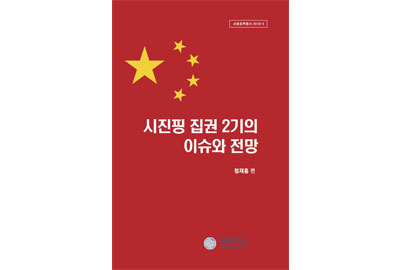Since the 19th National Congress of the Communist Party of China, Beijing proclaimed the transition from a ‘big power’ to a ‘strong power’. This indicates that China exudes strong confidence that it has risen as a strong power that has a strong voice in the international community alongside the U.S. based on the skyrocketed economic development which originated from the success of Chinese-style reform and opening policy for the last four decades. This is also an expression of intent to establish a new regional order. The Xi Jinping leadership already have initiated its moves to establish domestic and external environment to achieve the ‘Chinese dream’ by 2050 by proactively adopting slogans such as ‘striving for achievement (fen fa you wei)’ and ‘building a community with a shared future for mankind’ as its foreign policy strategy and goal. Setting the ‘Chinese dream’ as the grand national strategy, the Xi leadership, in its second term, has begun to pursue the specific plans under the medium-to-long term initiative of a great modern socialist country by 2035 and a global superpower by 2050. The leadership has set forth the directive to commit to the mid-to-long term foreign strategies such as Belt and Road Initiative, RCEP, and AIIB to secure hegemony in the region and to create a new growth engine. However, detailed studies on Xi Jinping’s second term foreign policy are yet to be undertaken fully in South Korea. At this juncture, it is crucial to understand the background, significance, and analysis of China’s new foreign policy in accordance with the consolidated one-man rule of Xi Jinping after the 19th Party Congress.
The slogans of ‘Chinese
Dream’ and ‘the great rejuvenation of the Chinese nation’ that the Chinese leadership
raised does not end at making an economically prosperous China. Rather, it
suggests a strategic goal to transpire firmly into a military power at least by
2050. This will have direct influence in the transformation of order
surrounding the Korean Peninsula. Particularly, Beijing will have a more active
policy regarding the Korean Peninsula to expand its stretch given the great
transformation of the Korean Peninsula triggered by changes in inter-Korean
relations and North Korea-U.S. relations.
This study is
chiefly to clarify and examine the key changes in foreign policy as China, with
the strong one-man rule established, undergoes the second term of Xi leadership
after the 19th Party Congress. The book consists of four chapters. The first
chapter tackles the rapidly-evolving U.S.-China relations under the theme of
the advent of the era of U.S.-China ‘strategic competition’. On the topic of
prospects and tasks of the ROK-China relations, the second chapter illustrates
China’s policy toward the Korean Peninsula and directions to develop South
Korea-China relations. In the third chapter, the author analyzes China’s
military reforms and military security strategy under the theme of China’s
changes in military security strategy in Xi Jinping’s second term and its key
implications. The final chapter scrutinizes the strategy and prospects of the Belt
and Road Initiative that the Xi Jinping leadership keenly promotes with the
topic of analysis on China’s Belt and Road Initiative and its forecasts in Xi
Jinping’s second term.
Volume 2019-5
Publication
Date: February 28, 2019
181 pages, paperback
